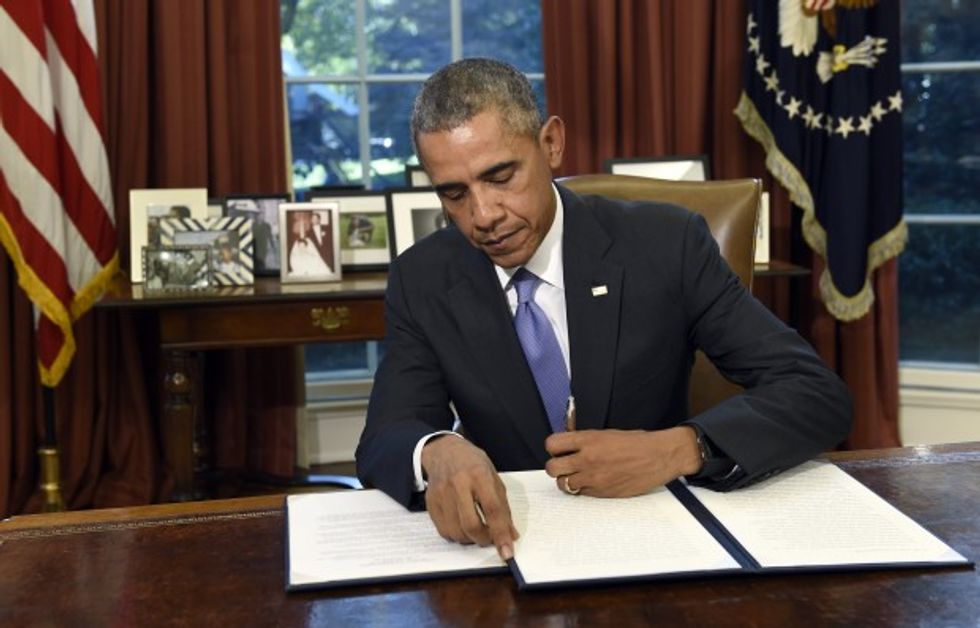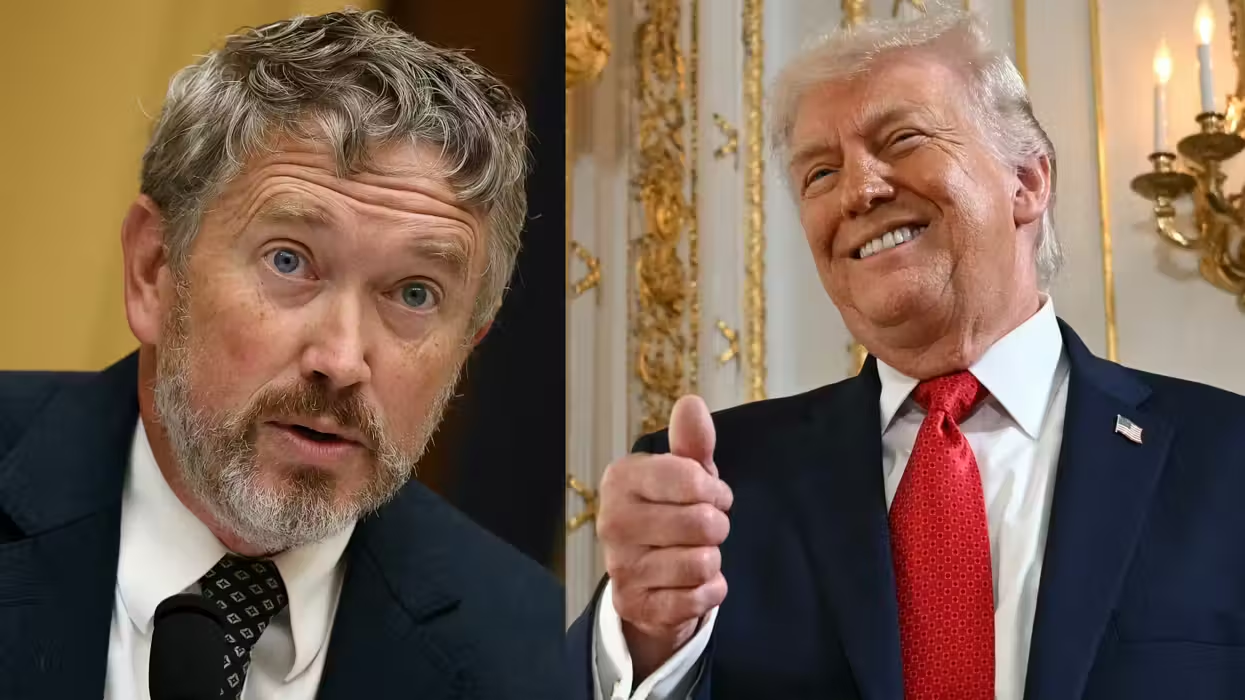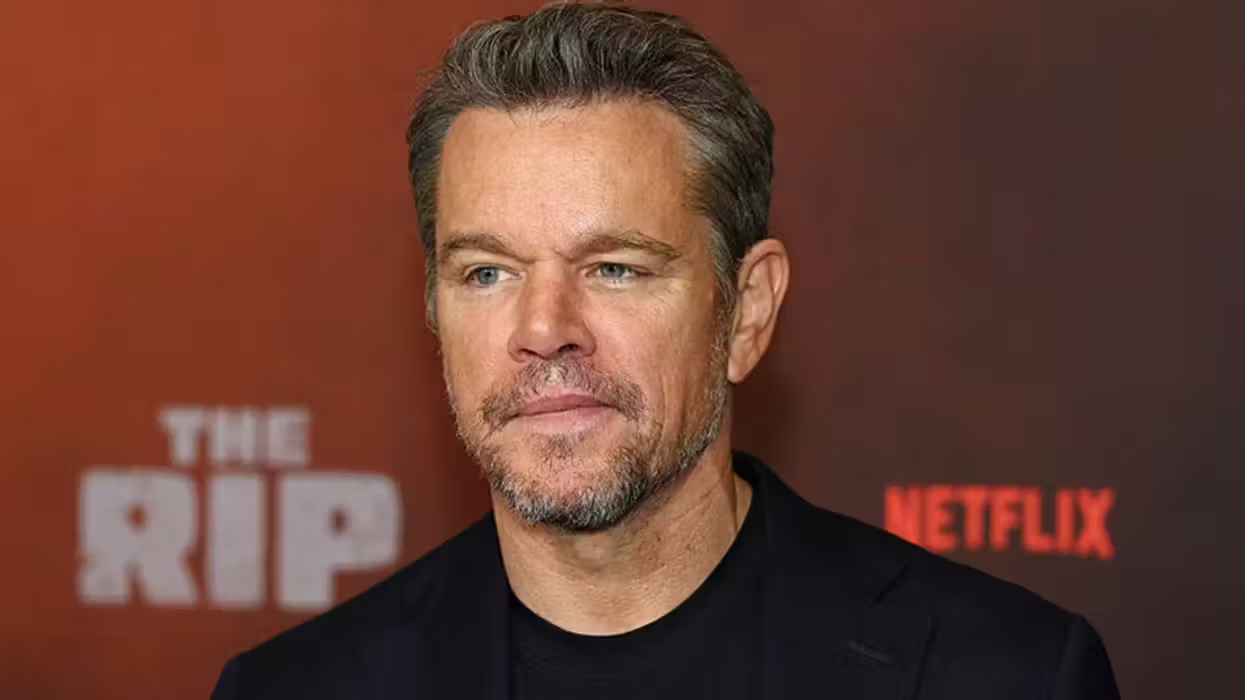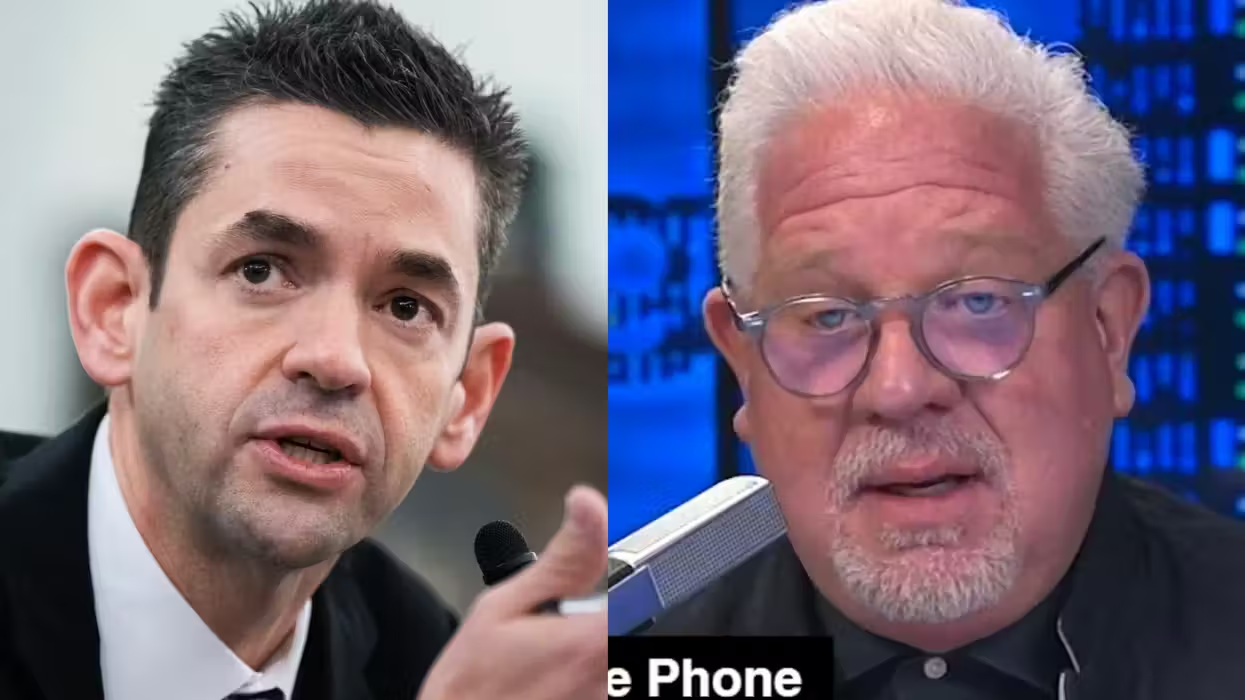President Barack Obama vetoed the National Defense Authorization Act based heavily on opposition to keeping Guantanamo Bay open, as well as his desire to increase non-defense spending beyond the current budget caps.
"Unfortunately, it falls woefully short in three areas," Obama said of the bill before the veto.
"Number one, it keeps in place the sequester that is inadequate for us to fund our military in a stable way that allows all of our armed forces to plan properly," Obama said. "This bill instead resorts to gimmicks and does not allow the Pentagon to do what it needs to do."
The president has stated that he wants to eliminate the entire sequester — the across-the-board budget cuts from 2013. The NDAA would have authorized an increase in military appropriations funding of $38 billion, largely by moving money around. However, separate Republican appropriations bills for other areas of the government keep the sequester funding levels in place.
 President Barack Obama vetoes the National Defense Authorization Act (NDAA) Oct. 22, 2015, in the Oval Office of the White House. (AP Photo/Susan Walsh)
President Barack Obama vetoes the National Defense Authorization Act (NDAA) Oct. 22, 2015, in the Oval Office of the White House. (AP Photo/Susan Walsh)
Secondly, he said, the bill does not allow the military to modernize and be more efficient.
"The third thing is this legislation specifically impedes our ability to close Guantanamo," Obama said.
The president added that Gitmo is "counterproductive to our efforts to defeat terrorism around the world" and "one of the premier mechanisms for jihadists to recruit. It's time for us to close it."
The veto marks only the fifth time in more than five decades a president has vetoed the Pentagon spending authorization bill.
The White House first issued the veto threat in June, stating that Obama "has been clear that he is not willing to lock in sequestration going forward, nor will he accept fixes to defense without also fixing non-defense."
The veto threat further argued against retaining the sequester budget caps, stating, "Compared to the president's budget, the cuts would result in tens of thousands of the nation's most vulnerable children losing access to Head Start, more than two million fewer workers receiving job training and employment services, and thousands fewer scientific and medical research awards and grants, adversely impacting the pace of discovery and innovation, along with other impacts that would hurt the economy, the middle class, and Americans working hard to reach the middle class."
Critics have accused Obama of playing politics with the Defense Department budget.
“The president has shown his real priority — at a time when [Syrian President Bahsir] Assad is meeting with [Russian President Vladimir] Putin, when we are struggling against ISIS, when China is building islands, he is going to veto a defense authorization bill to get an extra pound of flesh for non-defense spending,” Justin Johnson, senior policy analyst with the Heritage Foundation, told TheBlaze.
Other presidents who vetoed the NDAA were Presidents Jimmy Carter in 1978, Ronald Reagan in 1988, Bill Clinton in 1996 and George W. Bush in 2008. In each case, the rationale for the veto was based on defense spending rather than a “fix” on non-defense spending.
The Obama administration asked for a $38 billion increase in defense spending from sequestration levels and a $37 billion increase for non-defense spending. Congress approved the $38 billion for defense increases, though the White House contends that’s a “funding gimmick.”
The $612 billion bill would have kept Guantanamo Bay prison open, which past defense authorization bills that the president signed also did.
“He has expressed the same concerns since he has been president, and he has never vetoed the NDAA before,” Johnson told TheBlaze. “I don’t see that as the real reason for the veto. The real issue is domestic spending.”
The veto prompted strong responses both for and against.
“The president has continued to move the goalposts in his opposition to the NDAA, but his latest excuse, that he will not sign an NDAA unless Congress agrees to remove the spending caps on non-defense spending, is absurd — especially considering that these spending levels are completely unrelated to the NDAA,” said Concerned Veterans for America CEO Pete Hegseth in a statement. “Never before has a president vetoed a National Defense Authorization Act as a result of something that is not part of the bill.”
However, Anthony D. Romero, executive director of the American Civil Liberties Union, praised the veto as a step toward closing the Guantanamo detention center.
“If Guantanamo is ever to be closed, now is the time. And today the president clearly did the right thing by rejecting the bill’s restrictions on transferring Guantanamo prisoners who have been locked up without charge or trial for years on end,” Romero said in a statement. “Now Congress needs to send back to the president a bill that will let him close Guantanamo and end indefinite detention, and he needs to take decisive action to make his promise to close the prison a reality.”

 President Barack Obama vetoes the National Defense Authorization Act (NDAA) Oct. 22, 2015, in the Oval Office of the White House. (AP Photo/Susan Walsh)
President Barack Obama vetoes the National Defense Authorization Act (NDAA) Oct. 22, 2015, in the Oval Office of the White House. (AP Photo/Susan Walsh)






